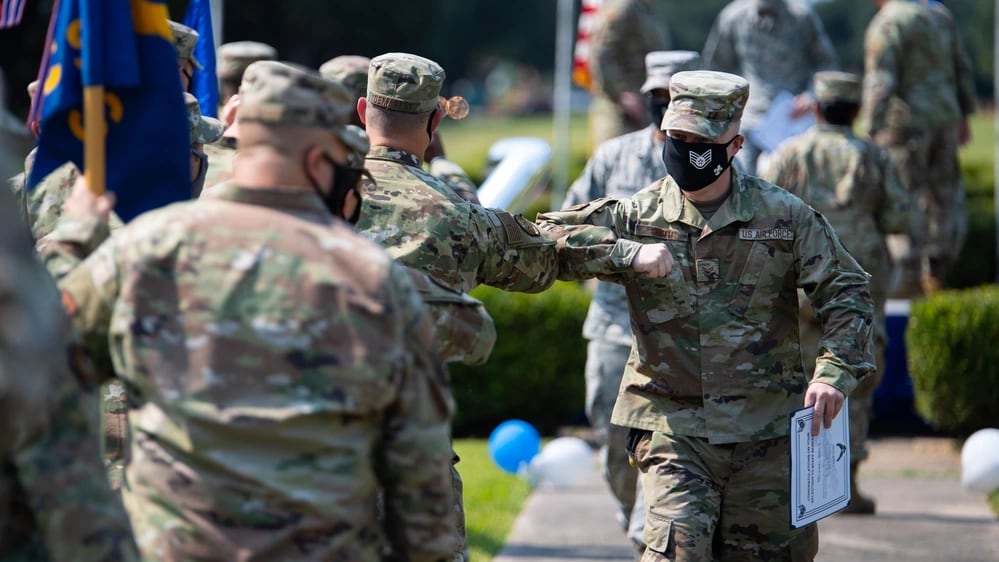The Air Force announced Wednesday it has tapped more than 500 airmen for promotion to chief master sergeant, the service’s highest enlisted rank.
In total, about one in five eligible airmen — 514 of 2,526 senior master sergeants — made the cut. That’s a slight uptick from last year, when the selection rate dipped to 18%, though the annual rate continues to hover around 20%.
Airmen typically spend at least 22 years in uniform before making it to chief master sergeant, or E-9. Those senior noncommissioned officers are seen as the highest-ranking managers in charge of the force’s welfare and supporting combat operations.
RELATED

The Space Force, which falls under the Department of the Air Force, also picked 15 senior master sergeants for promotion to chief, and 35 master sergeants for promotion to senior master sergeant. That’s more than one-quarter of eligible senior master sergeants and just 10% of eligible master sergeants.
Reaching senior master sergeant, or E-8, is particularly competitive because federal law limits the number of people in those jobs to just 2% of all troops. Most airmen spend about 20 years before becoming an E-8, but must have served in the Air Force for at least 11 years and as a master sergeant for 20 months.
The Air Force plans to release its list of chief master sergeant-selects on Dec. 6.
The service is in the midst of the first major change to how its 263,000 active-duty enlisted airmen are spread across the ranks in nearly 20 years.
RELATED
Air Force Times previously reported that the pool of master sergeants who are eligible for promotion to senior master sergeant is slated to shrink by about 3% as part of those changes, which limits their prospects of becoming a chief later on as well.
The proportion of E-9s and E-8s will remain the same at 1% and 2% of the force, respectively.
This latest selection round also comes amid widespread confusion about job performance evaluations, and fear that technical glitches could jeopardize some people’s chances to move up the ladder.
The Air Force Personnel Center has stopped using its new myEval system as bugs are worked out “to ensure there is no negative impact to any of our airmen or guardians,” it said Nov. 19.
Rachel Cohen is the editor of Air Force Times. She joined the publication as its senior reporter in March 2021. Her work has appeared in the Washington Post, the Frederick News-Post (Md.), Air and Space Forces Magazine, Inside Defense, Inside Health Policy and elsewhere.




